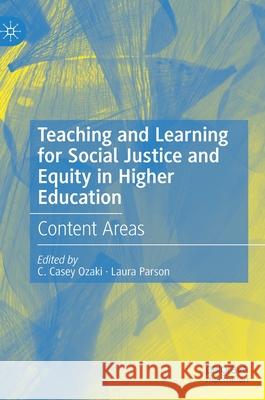Teaching and Learning for Social Justice and Equity in Higher Education: Content Areas » książka
topmenu
Teaching and Learning for Social Justice and Equity in Higher Education: Content Areas
ISBN-13: 9783030699468 / Angielski / Twarda / 2021 / 368 str.
Teaching and Learning for Social Justice and Equity in Higher Education: Content Areas
ISBN-13: 9783030699468 / Angielski / Twarda / 2021 / 368 str.
cena 724,58
(netto: 690,08 VAT: 5%)
Najniższa cena z 30 dni: 655,41
(netto: 690,08 VAT: 5%)
Najniższa cena z 30 dni: 655,41
Termin realizacji zamówienia:
ok. 22 dni roboczych.
ok. 22 dni roboczych.
Darmowa dostawa!
Kategorie:
Kategorie BISAC:
Wydawca:
Palgrave MacMillan
Język:
Angielski
ISBN-13:
9783030699468
Rok wydania:
2021
Wydanie:
2021
Ilość stron:
368
Waga:
0.61 kg
Wymiary:
21.01 x 14.81 x 2.24
Oprawa:
Twarda
Wolumenów:
01
Dodatkowe informacje:
Wydanie ilustrowane











